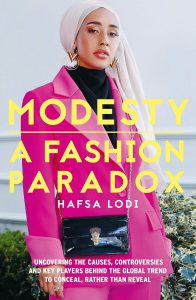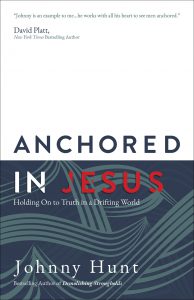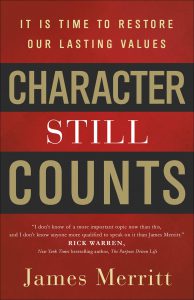 This week we’re looking at a seemingly comprehensive look at modern Muslim fashion. This week we’re looking at Modesty by Hafsa Lodi.
This week we’re looking at a seemingly comprehensive look at modern Muslim fashion. This week we’re looking at Modesty by Hafsa Lodi.
I grew up in a fairly conservative Christian tradition, the Southern Baptist Church. While my church was a *bit* more moderate in dress – women were allowed to wear pants, though it was frowned upon by the senior citizen crowd, for example – I was in a region (exurban Atlanta) where knowing people who attended more conservative churches with more stringent dress codes wasn’t uncommon. On church beach trips or pool parties, for example, one piece swimsuits for females were a common requirement. Even in that era, men and boys were expected to at minimum wear pants and close toed shoes along with some appropriate top (could be just a tshirt, as long as the torso was covered, though men generally wore at minimum polo shirts to services, and often dress shirts and ties). Hell, for much of my life my dad has been a deacon (church elder, basically) in the church my parents and brothers (and their families) still attend to this day. I actually remember one infamous example where our preacher was preaching at a church in a neighboring County in August. This being Georgia, let’s just say you don’t exactly want to wear pants in Georgia, and this was a Revival service to boot – a week long (ish) event of nightly church services, seen as a way to be extra pious and encourage more people to come to church. So it wasn’t exactly like this was a Sunday morning service (the “most holy” services in at least that brand of Christianity, where standards and protocols tend to be the most stringent). My parents were insisting I wear pants. I was insisting I wear shorts because it was so hot. At this point I was in my early teens or so, young enough that I couldn’t yet drive, old enough that I could make my desires known and fight for them. I actually don’t remember how that situation turned out – I don’t remember if we made the service that night or what I wore, though there is a faint thought that I did in fact wear pants and we did in fact make it to service.
The point being, while I’ve never actively considered how hard it may be to find trendy clothes that fit the modest standards of such groups, I have been a part of a culture that at least expects it, if not outright demands it/ forces it. So I get a version of where Lodi is coming from here, even while never experiencing her exact situation.
Which ultimately leads to the one criticism I have of this book.
Lodi does an *amazing* job of documenting Generation M, the Muslim Millenial Female, and its desires for trendy yet traditional (ish) fashion. She truly does a remarkable job of showing the history of both uncovering a century ago or so and recovering over the last 50 years or so, including the various debates and schools of thought on each. For a treatise specifically on these issues, this book is seemingly damn near perfect and for that alone it was utterly fascinating – as despite having watched a few episodes of America’s Next Top Model or Project Runway, I’m not exactly knowledgeable of that world at all really.
But the most glaring weakness of the book, the one that leaves it at just “amazing” rather than elevating it closer to “transcendental”, turns out to be that very laser focus on Muslim issues specifically. Sure, she starts and ends with an example of her childhood Mormon friend, and Christians and Jews (and specifically Mormons, whose Christianity is doubted in at least some circles) are mentioned sporadically and even no-faith reasons are mentioned even less, but are in fact mentioned. But they are almost always more as an aside and are never considered in any real kind of depth. What this book really needed was maybe just a single chapter each where Lodi stepped away from the Muslim angle and actually – if briefly – explored the same histories. thought processes, and modern issues of those specific groups. Particularly from the non-faith, skin care/ sun avoidance angle, it could have been a truly remarkable addition to the text here.
But again, even with that omission, this is truly an excellent book and particularly for those remotely interested in fashion generally or modest fashion in particular – and especially if you’re an Instagram addict with those proclivities – you’ll want to pick up this book immediately. Very much recommended.
As always, the Goodreads/ Amazon review:
Continue reading “Featured New Release of the Week: Modesty by Hafsa Lodi”



